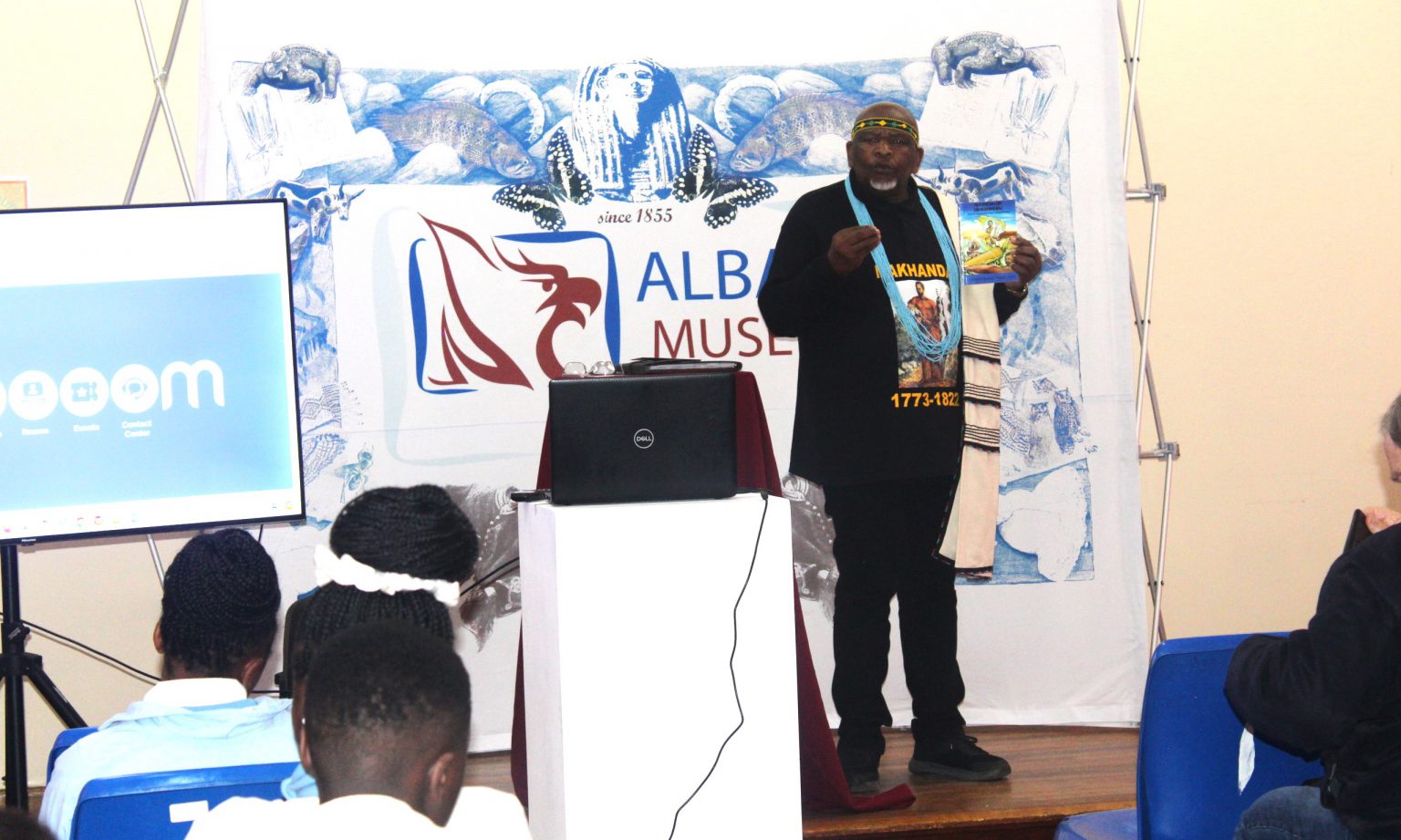By Siphesihle Joji and Andisiwe Plaatjie
To close off Heritage Month on Monday, 30 September, the Albany Museum in Makhanda hosted a public lecture to celebrate the life of Makhanda kaNxele, the Xhosa chief who was involved in the Battle of Egazini.
Titled “Celebrating the life of Makhanda: The cost of freedom”, the event involved a lecture delivered by Makana ward 2 councillor Ramie Xonxa.
Local schoolchildren, teachers, principals, traditional leaders were also part of the event.
There was also entertainment on offer at the event in the form of music.
Xonxa, recognised as the promoter of indigenous knowledge and systems, spoke at length about Makhanda.
Makhanda was a prophet and a warrior during the Xhosa wars of resistance. He was a chief of amaNdlambe and one of the knowledgeable ones. According to Xonxa, Makhanda was a senior subject because of his work, and even now most of the traditional leaders would say “we elevated Makhanda up to the status of being a chief, yet he wasn’t a chief”.
“He was a warrior that was trusted by Nkosi Ndlambe when the chief fought against the British settlers and they wanted to chase them all out.”
Makhanda played a huge role when it comes to the Battle of Egazini. Xonxa has urged people to stop referring to the war as the Battle of Grahamstown.
Recounting the history, Xonxa said the Xhosa warriors that were nearby Makhanda were in Gushane and also in eMagqunukhwebeni.
Makhanda’s concept of freedom referred to the sacrifices and hardships incurred while fighting against oppressive systems.
Makhanda believed that freedom required armed resistance, leading to loss of life and destruction. Makhanda spent years in exile,separated from his family and community. The Xhosa wars disrupted trade and agriculture, causing poverty and famine.
His leadership role put him at risk of imprisonment, torture and death. He was captured and imprisoned on Robben Island.
Makhanda had spent years hiding, separated from his people, whereby Makhanda’s family had suffered greatly during the wars. He endured physical and psychological torture during captivity and his death was from drowning while trying to escape from Robben Island in 1829.
Makhanda’s life and legacy stood against colonial forces despite overwhelming odds. He also employed guerrilla tactics and alliance, he united disparate groups against a common enemy.
Makhanda’s story serves as a powerful reminder of the sacrifices made by those fighting for liberation and inspires continued resistance against injustice.


